 https://steponecharity.co.uk/wp-content/uploads/2025/09/Website-News-Headers-2024-1.png
355
700
Isaac Mann
https://steponecharity.co.uk/wp-content/uploads/2024/02/step-one-wellbeing.svg
Isaac Mann2025-09-12 09:52:112025-09-12 09:52:11Walking for a Cause: The Journey Behind the 300,000 Steps
https://steponecharity.co.uk/wp-content/uploads/2025/09/Website-News-Headers-2024-1.png
355
700
Isaac Mann
https://steponecharity.co.uk/wp-content/uploads/2024/02/step-one-wellbeing.svg
Isaac Mann2025-09-12 09:52:112025-09-12 09:52:11Walking for a Cause: The Journey Behind the 300,000 StepsWritten by Tom Acres & Dr. Chandanee Kotecha.
Wellbeing@Work Blog Series
In July 2025, a UK tribunal ruled Capgemini had discriminated against a neurodivergent employee by failing to deliver recommended ADHD awareness training. Occupational health experts had advised training as a reasonable adjustment, but it was ignored, breaching the Equality Act 2010.
The case made headlines, but the bigger message is this: neurodiversity training isn’t just about avoiding lawsuits. It’s about building healthier, more inclusive workplaces where people and organisations thrive.
Why Neurodiversity Training Matters
Neurodiversity describes natural differences in how people think and process information – just as biodiversity strengthens ecosystems, neurodiversity strengthens workplaces. Conditions like autism, ADHD, dyslexia, and dyspraxia bring unique perspectives and skills.
Yet awareness remains low. Training often focuses on single conditions in isolation, missing the reality that many traits overlap. One in six people has a “spiky profile” – exceptional strengths in some areas, with challenges in others. Supporting individuals, not labels, is the key.
Workplaces are still built with a “neurotypical default,” which can unintentionally exclude. Training helps teams recognise that differences in focus, communication, or sensory needs aren’t flaws but part of human diversity.
Legal Duty vs Human Duty
Yes, the tribunal shows that ignoring training advice can breach the law. But compliance shouldn’t be the only reason. The real value is a culture where neurodivergence is understood, respected, and celebrated.
Psychologically safe workplaces, where employees can be themselves without fear of stigma, lead to higher engagement, loyalty, and productivity.
The Business Case for Inclusion
Neurodivergent strengths often include:
- Innovative problem-solving
- Exceptional attention to detail
- Deep focus and expertise
- Resilience and adaptability
- Empathy and fairness
These aren’t niche skills, they’re competitive advantages. History and business alike show the impact: Richard Branson (dyslexia), Michael Phelps (ADHD), Greta Thunberg (autism).
Organisations that embrace neurodivergence unlock fresh energy, innovation, and perspective.
What Effective Training Looks Like
Good neurodiversity training is:
- For managers: tools to lead inclusively, adapt communication, and create supportive environments.
- For employees: awareness to foster empathy, teamwork, and self-advocacy.
- Practical: real-world adjustments like written instructions, quiet spaces, and flexible work styles.
- Inclusive: recognising diversity within diversity – no one-size-fits-all.
- Ongoing: culture change takes more than a single workshop.
Change happens when both leaders and staff commit, top-down and bottom-up.
Inclusion Is Prevention
Tribunals may penalise organisations that neglect training, but forward-thinking employers act out of commitment, not fear. Inclusion isn’t a tick-box, it’s a mindset that asks: How can we make difference an asset?
When neurodivergent people feel safe to be themselves, businesses don’t just avoid risk, they gain unmatched creativity, focus, and innovation.
Neurodiversity training is not just protection. It’s potential.
Step One’s Wellbeing@Work Training
We offer two practical programmes:
- Understand, Support, Empower (for all employees): builds empathy, inclusivity, and tools for navigating the workplace. This training also offers helpful tools for neurodivergent individuals to better navigate the workplace and advocate for their needs.
- Inclusive Leadership (for managers): equips leaders to support neurodivergent colleagues and thrive in their own leadership roles. This training also equips neurodivergent leaders with insight and techniques to thrive in their leadership roles.
Both courses turn awareness into action, helping teams create workplaces where everyone can succeed.
Ready to start? Get in touch to discuss how we can tailor training to your organisation.
Step One’s Wellbeing@Work Training
We offer two practical programmes:
- Understand, Support, Empower (for all employees): builds empathy, inclusivity, and tools for navigating the workplace. This training also offers helpful tools for neurodivergent individuals to better navigate the workplace and advocate for their needs.
- Inclusive Leadership (for managers): equips leaders to support neurodivergent colleagues and thrive in their own leadership roles. This training also equips neurodivergent leaders with insight and techniques to thrive in their leadership roles.
Both courses turn awareness into action, helping teams create workplaces where everyone can succeed.
Ready to take the next step?
Get in touch today to learn more or discuss how we can tailor these sessions to your organisation’s needs.
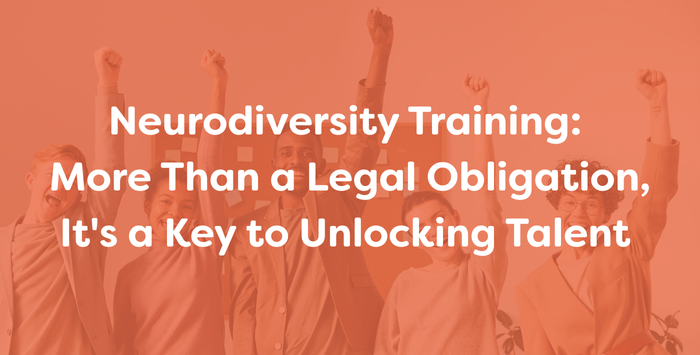
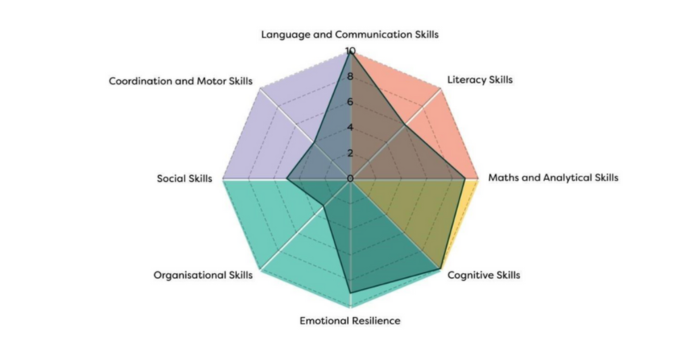
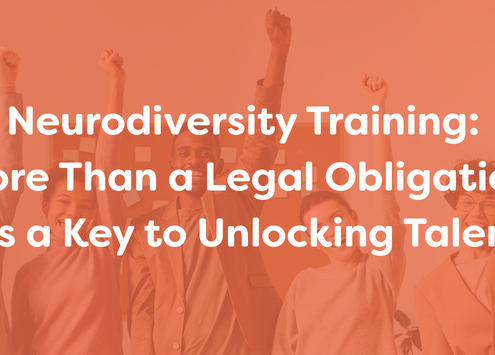

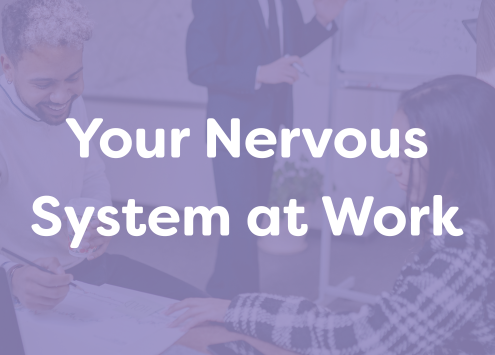
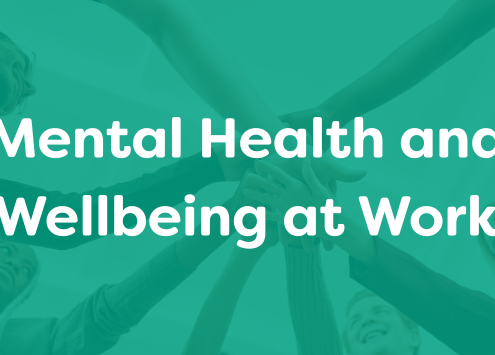

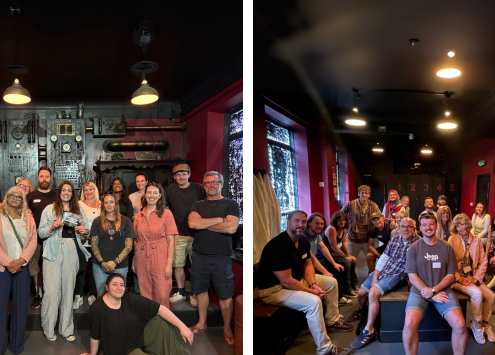
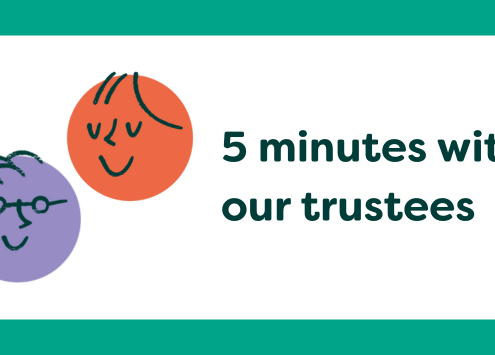
![Graphic with quote reading: “You met me at one of the most difficult times and seeing the difference you’ve made is amazing [...] Please keep doing what you do. You change lives.”](https://steponecharity.co.uk/wp-content/uploads/2025/04/Website-News-Headers-2024-33-495x355.png)
